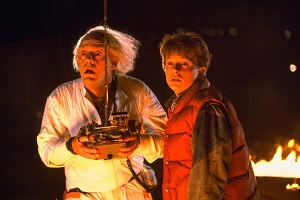
McLeod Group Blog, January 17, 2017
How serious is Canada about global peace and security? The decision has been made to return to UN peacekeeping, but only in principle. Now comes the hard part: the what and the where. Do we understand what has been happening during our absence from the modern world of peace operations? Discussions have been based on a fair amount of misinformation (e.g. peacekeeping didn’t use to be complicated, or political, or dangerous).
So what’s missing now?
When dealing with the United Nations, we need to remember that WE are the United Nations. The UN is a member-state organization which depends on members for its policies, programs, decisions and funding. If the UN ‘fails’, it is the failure of member states. The tragedy of Canada’s long absence under the previous two governments is that we never saw ourselves as a member state obligated to fix the very problems we were quick to criticize.
These are not military operations, but political operations that require military assets. One cannot separate the military engagement or presence from the political process. And member states must meet other mission needs, such as political officers, human rights expertise, development investment and headquarters requirements over and above military personnel.
We shouldn’t get hung up on ‘traditional peacekeeping’. There is no such thing. Modern peace operations are more complex than ever, and bring together military, political and development pillars under a civilian head reporting to the Security Council through the Secretary General. They have Chapter VI or VII mandates, are deployed when there is no actual peace, they have the obligation to respond with force when necessary and to act to protect civilians. They run elections, monitor human rights, work with development partners, whether civil society, bilateral donors or multilateral organizations, and political partners such as the African Union and the European Union.
Why commit only 600 troops and 150 police officers? This may be substantial, but is just a start. For Canada to have influence, to lead missions and provide force commanders and civilian heads of mission, we need to be a serious political, development and military player; to be strategic; and to invest in understanding the basis of conflict. This is particularly true for Africa, where almost two thirds of UN missions are concentrated. We are coming late to the party and must do our homework.
Every Canadian wants to avoid casualties, but we are deploying soldiers to war zones, and the possibility of casualties must be faced. Through all the years we refused to send soldiers, our humanitarian colleagues were dying on the front lines—and still are.
The need for peacekeeping is in part the result of failed development. Effective development programming has to be part of our approach. But we need at all costs to avoid the short-term, ‘blue-ribbon’, high-profile, winning-hearts-and-minds operations that have accompanied so many failed peacekeeping operations in the past. Development assistance should not be used to buffer, sanitize or market military operations; it should be an organic part of a solid reconstruction effort that will, in due course, eliminate the need for peacekeepers.
We must understand the real problems behind sexual exploitation and abuse in UN missions. It is a truly appalling testament to the behaviour of men in war. But to say it is a ‘UN’ problem is missing the point when we now know that many military and police organizations around the world (including our own) have similar problems. It is a global male violence issue which occurs in armies around the world, including under UN auspices. It is a women’s rights issue and a question of protection of civilians, particularly women. Canada, like other UN member states, had, until it expired last March, a National Action Plan on Women, Peace and Security, drafted by the government. This action plan must be strengthened and renewed, in consultation with civil society.
We need to take the global view of what is in our ‘national interest’. Canada’s peace, security and prosperity depend on a stable and secure world. Global poverty, inequality, underdevelopment and poor governance and their link to environmental degradation, political unrest and terrorist action has long been understood. A return to peacekeeping requires a better understanding of the causes of conflict along with a commitment to engage in prevention. The whole raison d’être of the United Nations is the realization that global security and prosperity is in everybody’s interest.
